POSET-RL: Phase ordering for Optimizing Size and Execution Time using Reinforcement Learning
Shalini Jain, Yashas Andaluri, S. VenkataKeerthy and Ramakrishna Upadrasta
Published in ISPASS 2022 (Slides) 
The increasing memory demands of applications are difficult to meet on devices which have constrained resources. Limiting the usage of memory in such cases is of paramount importance. However, code size improvements should not have a negative impact on the runtime. POSET-RL is a framework that predicts the optimal optimization sequence for a program to primarly achieve reduction in binary size along with reduction in execution time.
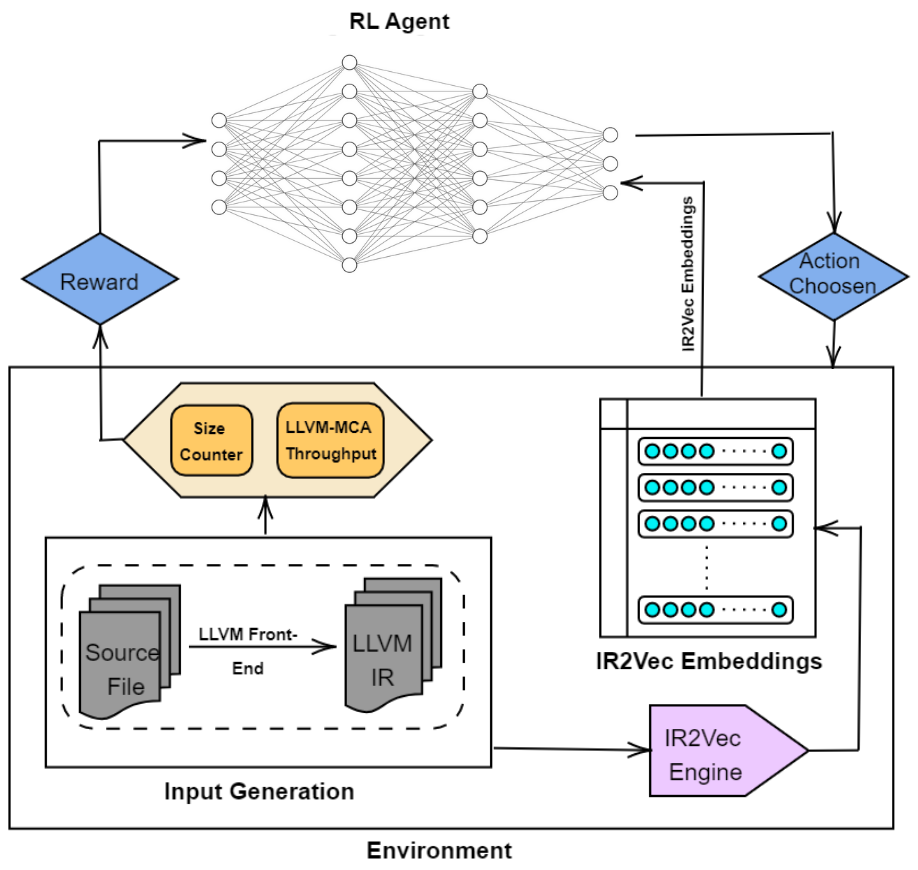
POSET-RL uses a reinforcement learning approach as the search space of optimization sequences is too big to enumerate. For a compiler with m optimization passes, if the sequence length is fixed as n, then there can be potentially mn combinations, allowing repetitions.
The reinforcement learning model is trained and evaluated on programs that are represented using IR2Vec embeddings. The action space contains the subsequences created using the Oz dependence graph (ODG). Sequences are constructed from this graph by finding walks that start and end at critical nodes (with degree greater than a value k).
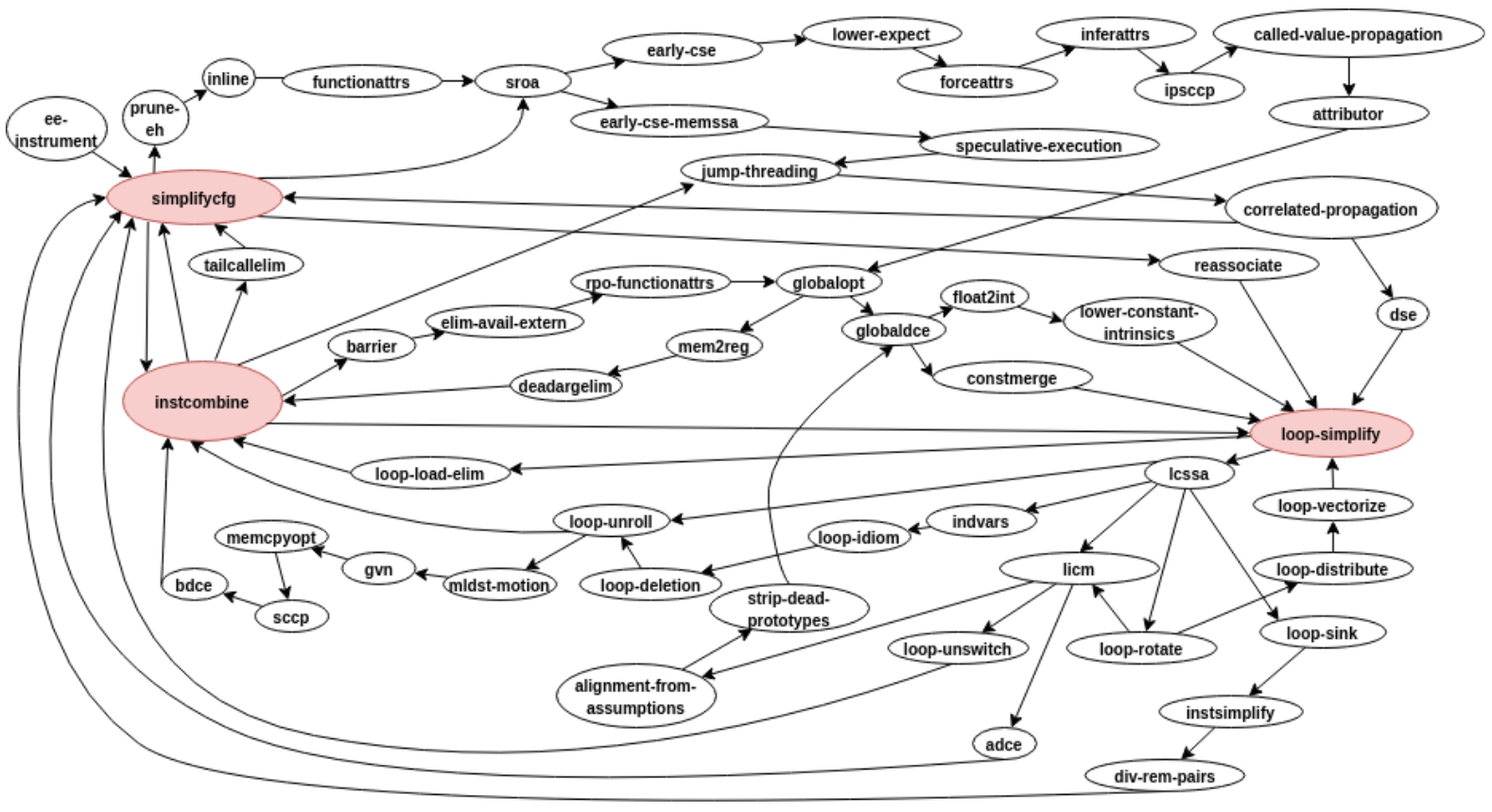
The state of the program after every transformation subsequence is represented using IR2Vec embeddings. The reward provided to the model is the difference in binary size between current state and last state divided by the base binary size. This is done similarly for execution time using throughput measured by LLVM-MCA but with a negative sign.
Performance
The improvements we achieved over Oz in terms of binary size and execution time for the SPEC benchmark are shown below.
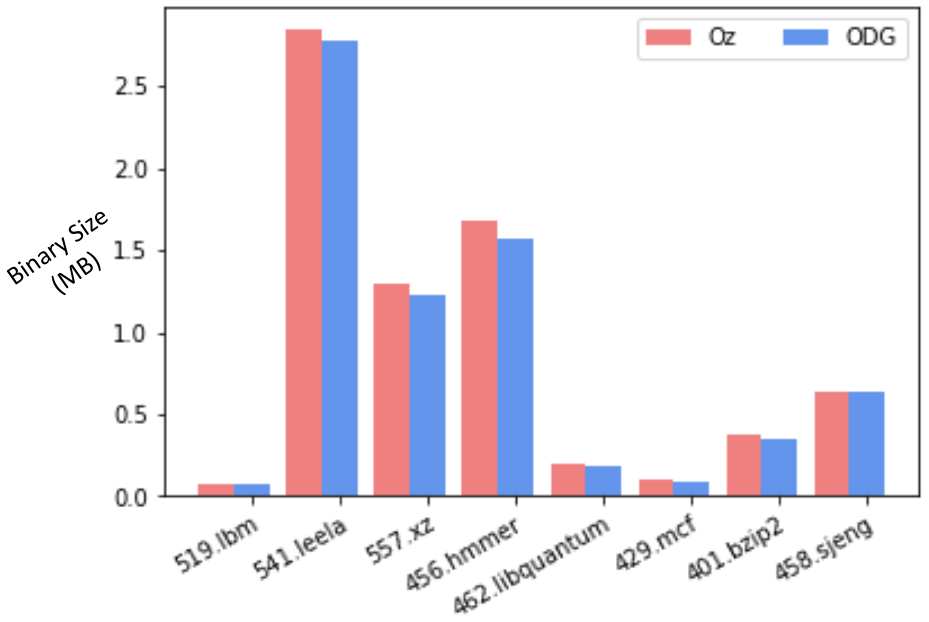 |
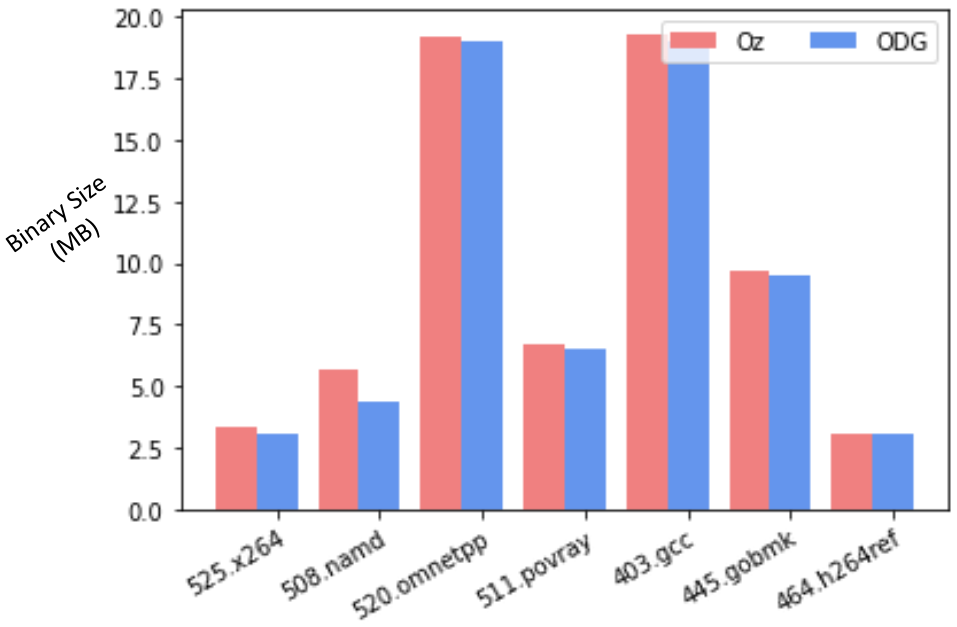 |
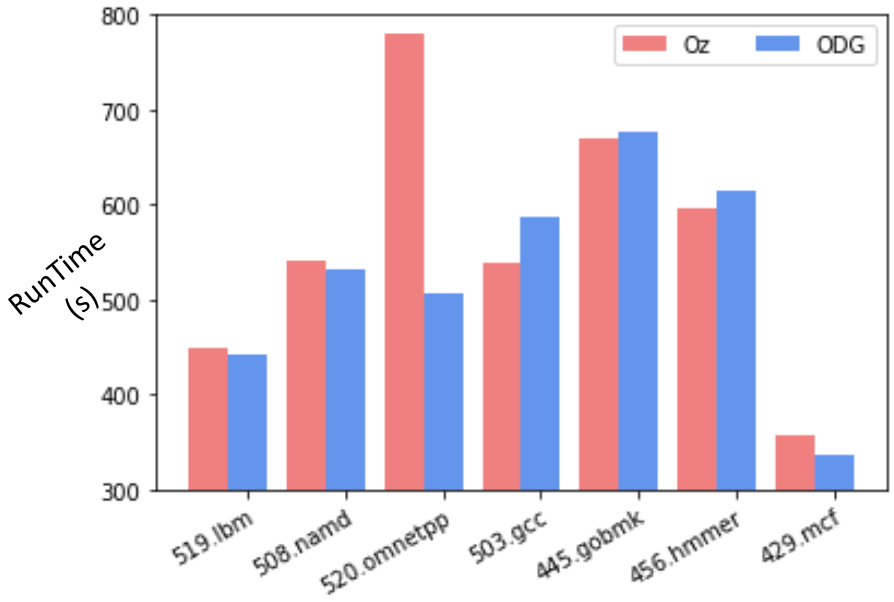 |
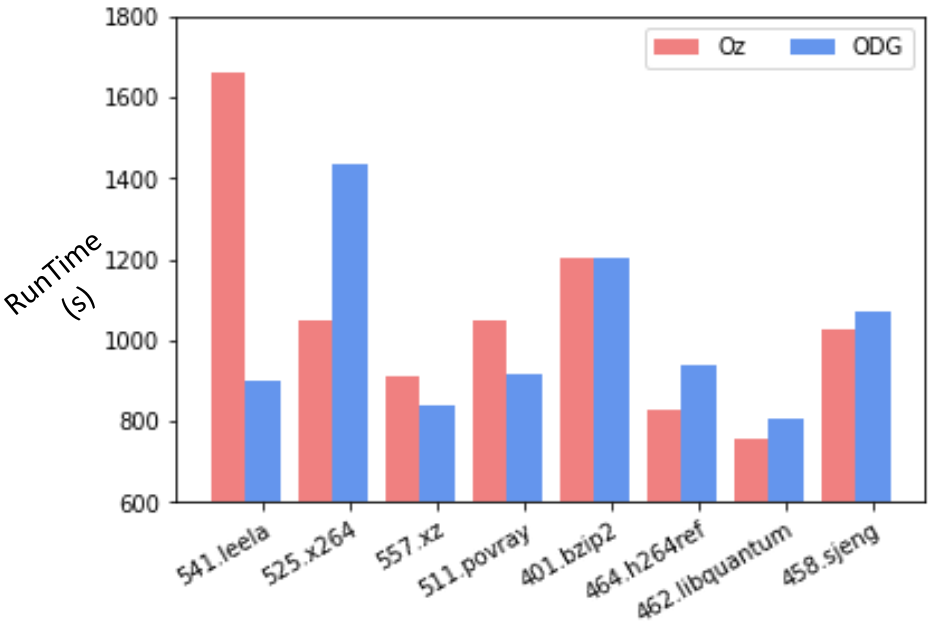 |
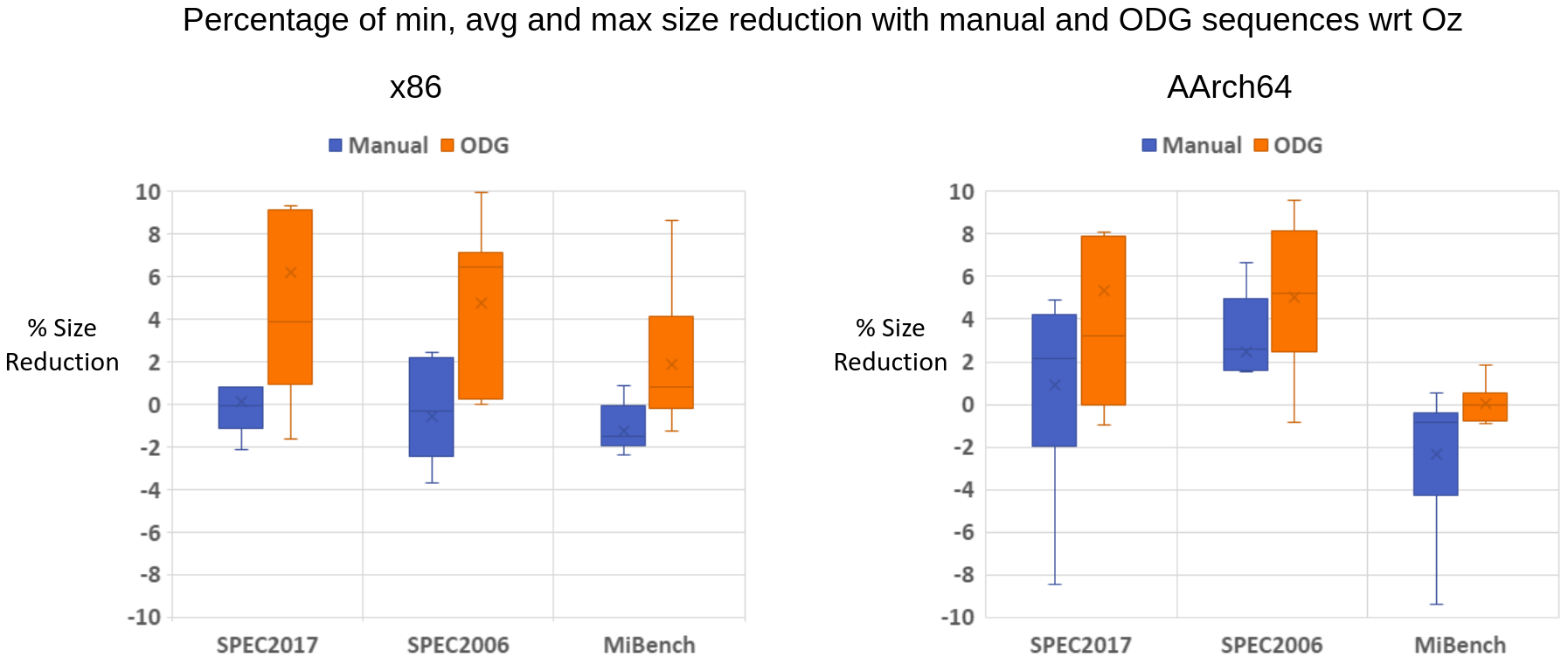
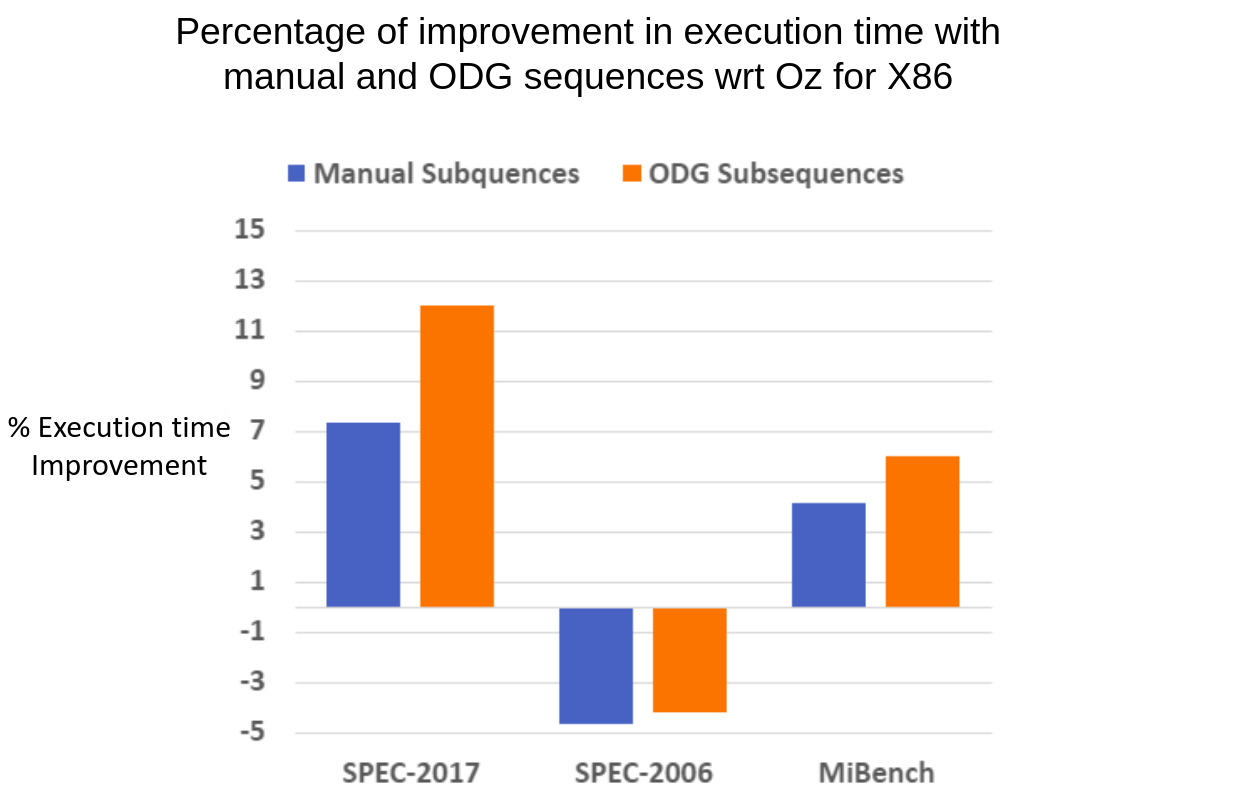
Artifacts
Code and other artifacts are available on our GitHub page.
Funding
This research is funded by the Department of Electronics & Information Technology and the Ministry of Communications & Information Technology, Government of India. This work is partially supported by a Visvesvaraya PhD Scheme under the MEITY, GoI (PhD-MLA/04(02)/2015-16), an NSM research grant (MeitY/R&D/HPC/2(1)/2014), a Visvesvaraya Young Faculty Research Fellowship from MeitY, and a Google PhD Fellowship.